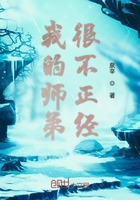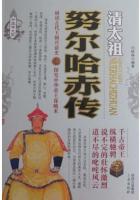359 n.] On the morrow, he was heard to say publicly: "Daun has let us out of check-mate; the game is not lost yet. We will rest ourselves here, a few days; then go for Silesia, and deliver Neisse." The Anecdote-Books (perhaps not mythicalIy) add this:
"Where are all your guns, though?" said the King to an Artilleryman, standing vacant on parade, next day. "IHRO MAJESTAT, the Devil stole them all, last night!"--"Hm, well, we must have them back from him." [Archenholtz, i. 299.]
Nothing immoderately depressive in Hochkirch, it appears;--though, alas, on the fourth day after, there came a message from Baireuth;which did strike one down: "My noble Wilhelmina dead; died in the very hours while we were fighting here!" [On a common Business-Letter to Prince Henri, "Doberschutz, 18th October, 1758," is this sudden bit of Autograph: "GRAND DIEU, MA SOEUR DE BAREITH!"--(Schoning, <italic> Der siebenjahrige Krieg, nach der Original-Correspondens &c. aus den Staats-Archiven: <end italic> Potsdam, 1851: i. 287.)] Readers must conceive it: coming unexpected more or less, black as sudden universal hurricane, on the heart of the man; a sorrow sacred, yet immeasurable, irremediable to him; as if the sky too were falling on his head, in aid of the mean earth and its ravenings:--of all this there can nothing be said at present.
Friedrich's one relief seems to have been the necessity laid on him of perpetual battling with outward business;--we may fancy, in the rapid weeks following, how much was lying at all times in the background of his mind suppressed into its caves.
Daun, it appears, was considerably elated; spent a great deal of his time, so precious just at present, in writing despatches, in congratulating and being congratulated;--did an elaborate TE-DEUM, or Ambrosian Song, in Artillery and VOX HUMANA,--which with the adjuncts, say splenetic people, as at Kolin, sensibly assisted Friedrich's affairs. Daun was by no means of braggart turn; but the recognition of his matchless achievement by the gazetteer public, whether in exultation or in lamentation, was loud and universal;and the joy, in Vienna and the cognate quarters, knew no bounds for the time being. Thus, among other tokens, the Holiness of our Lord the Pope, blessing Heaven for such success against the Heretic, was pleased to send him "a Consecrated Hat and Sword,"--such as the old Popes were wont, very long ago, to bestow on distinguished Champions against the Heathen,--(much jeered at, and crowed over, by a profane Friedrich [<italic> OEuvres de Frederic, <end italic>
xv. 122, 124, 126, &c. &c.: in PREUSS, ii. 196, compiete List of these poor Pieces; which are hearty, not hypocritical, in their contemptuons hilarity, but have little other metit.]): "the effect of which miraculous furnishings," says Tempelhof, "turned out to be that the Feldmarschall never gained any success more;" in fact, except that small thing on Finck next Year, never any, as it chanced. Daun had withdrawn to his old Camp, on the day of Hochkirch; leaving only a detachment on the field there: it was not for six or seven days more that he stept out to the Kreckwitz and Purschwitz neighborhood; more within sight of his vanquished enemy,--but nothing like vigilant enough of what might still be in him, after such vanquishing!--We must spare this Note, for the sake of a heroic kind of man, who had not too much of reward in the world:--"Tebay could not recover Keith's body: Croats had the plundering of Keith; other Austrians, not of Croat kind, carried the dead General into Hochkirch Church: Lacy's emotion on recognizing him there,--like a tragic gleam of his own youth suddenly brought back to him, as in starlight, piercing and sad, from twenty years distance,--is well known in Books. On the morrow, Sunday, October 15th, Keith had honorable soldier's-burial there,--'twelve cannon' salvoing thrice, and 'the whole Corps of Colloredo' with their muskets thrice;Lacy as chief mourner, not without tears. Four months after, by royal order, Keith's body was conveyed to Berlin; reinterred in Berlin, in a still more solemn public manner, with all the honors, all the regrets; and Keith sleeps now in the Garnison-Kirche:--far from bonnie Inverugie; the hoarse sea-winds and caverns of Dunottar singing vague requiem to his honorable line and him, in the imaginations of some few. 'My Brother leaves me a noble legacy,'
said the old Lord Marischal: 'last year he had Bohemia under ransom; and his personal estate is 70 ducats, (about 25 pounds).
[Varnhagen, p. 261.]
"In Hochkirch Church there is still, not in the Churchyard as formerly, a fine, modestly impressive Monument to Keith; modest Urn of black marble on a Pedestal of gray,--and, in gold letters, an Inscription not easily surpassable in the lapidary way: ... 'DUM INPRAELIO NON PROCUL HINC INCLINATAM SUORUM ACIEM MENTE MANU V0CE ETEXEMPLO RESTITUERAT PUGNANS UT HEROAS DECET OCCUBUIT. D. XIV.
OCTOBRIS' These words go through you like the clang of steel.
[In RODENBECK, i. 149. Given also (very nearly correct) in CORRESPONDEENCE OF SIR ROBERT MURRAY KEITH (London, 1849), i. 151.
This is the junior of the two Diplomatic Roberts, genealogical cousins of Keith; by this one (in 1771, not 1776 as German Guide-books have it) the Hochkirch Monument was set up. A very interesting Collection of LETTERS those of his;--edited with the usual darkness, or rather more.] Friedrich's sorrow over him ('tears,' high eulogies, 'LOUA EXTREMEMENT') is itself a monument.
Twenty years after, Keith had from his Master a Statue, in Berlin.
One of Four; to the Four most deserving: Schwerin (1771), Winterfeld (1777), Seidlitz (1779, Keith (when?), [Nicolai <italic>
(Beschreibung der Residenzstadte, <end italic> i. 193, 194) gives these dates for the Three, and for Keith's no date.]--which still stand in the Wilhelm Platz there.















